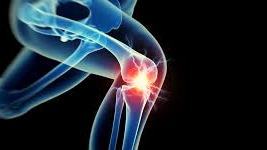

Perfect Timing: How Do You Know When It's Time To Do Joint Replacement?
Joint replacement surgeries are some of the most popular and successful operations being performed today. In fact, in 2017, more than 1.6 million Americans underwent hip or knee replacement. And in 90 percent of the cases, the patient is happy with the result.
If you're someone who suffers from chronic joint pain and you hear about those kind of results, it's easy to think "replacement surgery is for me." And you may be right. But surgery is, shall we say, a big deal and should rarely be your first course of action. While joint replacement can be life-changing, it can also be painful, there's always the risk of infection, and devices can wear down prematurely. For those reasons, I advise my patients to pursue other approaches to care first, beginning with options and lifestyle changes that don't involve medication.
The first and easiest option is ice. Ice works by reducing blood flow to a particular area, which can significantly reduce inflammation and swelling that causes pain, especially around a joint or a tendon. It can temporarily reduce nerve activity, which can also relieve pain. Plus, it's free.
If that's not sufficient to bring relief, the next recommendation is weight loss. Dropping weight is a great way to decrease the amount of stress put on knees, hips, and ankles. If you think about it, the benefit of relieving the weight of five, 10 or 50 pounds from the joint with every step are obvious and, in some cases, is enough to resolve pain significantly or even completely.
I also recommend exercise or physical therapy for anyone dealing with joint pain. When I suggest this I often get a lot of push-back from patients with arthritis. But studies have shown that low-impact exercise, like walking, bicycling and swimming actually helps with arthritis pain. And in many cases, physical therapy can do a great deal to reduce pain and keep you active and engaged.
If those efforts don't provide the desired relief, my next recommendation is an over-the-counter pain reliever, and this is key, in moderation. For many people, anti-inflammatories, or NSAIDS, can be very helpful in controlling pain when taken in small doses for short periods of time. They should not, however, be taken on a daily basis as the potential side effects range from mild to severe. Long-term use of NSAIDs can cause upset stomach or cause intestinal bleeding, kidney damage, and cardiovascular problems including increased risk of heart attack for those with heart issues.
In cases where the described conservative treatments aren’t doing the trick, injections may be an option. Most people are familiar with steroid injections which can be very effective for osteoarthritis pain. Other injectables include lubricant substances, platelet-rich plasma, and hyaluronic acid, each which has its own use and benefit. It really becomes a matter of personal choice, including expense, as to which you might choose to pursue. Injectables are often the best and last option for individuals who are not candidates for surgery due to lung or heart issues.
If you've run through all those options and are still not able to engage in activities and life at the level or way you want, then it may be time to consider surgery.
Dr. Michaela Schneiderbauer is an orthopedic surgeon with SVMC Orthopedics. She sees patients in Bennington and at the SVMC Northshire Campus in Manchester. Call SVMC Orthopedics at 802-442-6314 to learn more about your options and how they can get you back to the life you love.

Tags: SVMC,






















